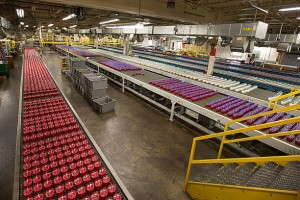 The integration of management systems provides the managerial support needed to foster the adoption of cleaner production technologies both in developed and developing countries, according to a recent study published in the Journal of Cleaner Production by UB Business School researchers Alfonso Hernandez-Vivanco, Merce Bernardo and Claudio Cruz-Cazares. However, integration of management systems does not have a significant effect on sustainable product innovations, research shows. Therefore, the authors conclude that more efforts are required to accomplish a sustainability approach in the development of new products.
The integration of management systems provides the managerial support needed to foster the adoption of cleaner production technologies both in developed and developing countries, according to a recent study published in the Journal of Cleaner Production by UB Business School researchers Alfonso Hernandez-Vivanco, Merce Bernardo and Claudio Cruz-Cazares. However, integration of management systems does not have a significant effect on sustainable product innovations, research shows. Therefore, the authors conclude that more efforts are required to accomplish a sustainability approach in the development of new products.
The UB Business School researchers are among the first to relate empirically the integration of management systems, the adoption of cleaner production technologies and product innovation in countries with diverse economic backgrounds. However, these results shall be interpreted with caution. The authors study the current status of candle manufacturers in Europe and Latin America, but other firms or firms from other industries and regions might not be represented. The candle industry was chosen because its traditional consumption throughout human history allows studying countries in different stages of economic development and because candles have always been involved in the debate of their indoor pollution and health effects.
Hernandez-Vivanco, Bernardo and Cruz-Cazares suggest that the integration of management systems fosters the elimination of pollution and social effects at source. It does no only promote process innovations but it also provides the necessary strategical support so that such innovations are sustainable. No significant differences in terms of sustainable innovations are evidenced among candle manufacturers in Europe and Latin-America, the researchers highlight.
The study also shows that bigger companies are more innovative in terms of the adoption of cleaner production technologies since they have more resources to invest in new technologies. However, no significant differences are observed in terms of sustainable product innovation. On the other hand, younger companies seem to be more inclined to developing sustainable product innovations. Nevertheless, the age of companies seems not to have any significant role on the adoption of cleaner production technologies.
The researchers will continue to investigate into the managerial means to attain corporate sustainability. This includes considering the dynamic environment in which companies operate. The increasingly trend of innovating in open and collaborative networks to benefit more and more demanding stakeholders will be also addressed in future research.